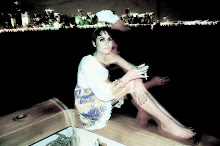Starting Out in the Evening Trailer
BY: A.O. Scott
A crepuscular glow suffuses “Starting Out in the Evening,” Andrew Wagner’s intelligent, careful adaptation of a near-perfect novel by Brian Morton. This is not only a matter of the cinematography — digital video given an unusual burnish by Harlan Bosmajian, the director of photography — or of the setting. Late in the day, the sun slanting down over the North American mainland cloaks the brick and limestone of the Upper West Side of Manhattan in a somber, serious light that may, more than anything else, explain the area’s reputation for deep and lofty thought.
One of Mr. Wagner’s themes (and also Mr. Morton’s) is the waning of that old, literary New York, the twilight of an idea of the city as a capital of the modern mind. Leonard Schiller, one of the main characters, is a retired teacher and all-but-forgotten novelist. His four completed novels are long out of print, and we find him, in his 70s, pecking slowly away at a fifth.
Not that he feels sorry for himself or solicits our pity. No, Leonard, as embodied by Frank Langella, is a picture of old-fashioned decorum and steadfast dignity. There is a certain kind of man who will not leave his house without putting on a tie. Leonard wears one, firmly knotted in a crisp white collar, at his writing desk or his kitchen table.
His routine, which is also the slow unwinding of his life, is interrupted by Heather Wolfe (Lauren Ambrose), an ambitious young graduate student who wants to write a master’s thesis on Leonard and then also, perhaps, reintroduce him to the reading public. He is both flattered and unnerved by the attention — which is more than simply scholarly — but to say too much about what happens between them would risk spoiling one of the most delicate and peculiar romances recently depicted on film.
The romance is not only, indeed not primarily, between them, but between each of them and an exalted notion of literature, a passion that the film honors but does not sentimentalize. Writing and reading do not make Leonard and Heather better than they might otherwise be — they may have the opposite effect — or even more complicated.
Ariel (Lili Taylor), Leonard’s nonliterary daughter, is in some ways the most complex character in the story, her temperament a thicket of contradictory impulses and desires. Approaching 40, she wants to have a child but finds herself drawn back into a relationship with Casey (Adrian Lester), whose resistance to parenthood had been the cause of their earlier breakup.
Those four people — Leonard, Heather, Ariel and Casey — pretty much constitute the film’s universe. But even though it is less populous than Mr. Morton’s novel (which featured a cameo from the literary critic Alfred Kazin and a few more fictitious old-timers to keep Leonard company), the adaptation, with a screenplay by Mr. Wagner and Fred Parnes, rarely feels unduly claustrophobic or rarefied. Allusions and incidents that evoked the milieu of Leonard’s younger days, and the texture of his mind, have been pruned away. But in their place is the marvelous fact of Mr. Langella, who carries every nuance of Leonard’s experience — including his prodigious, obsessive reading — in his posture and his pores.
There are not too many screen performances that manage to be both subtle and monumental. Watching Mr. Langella’s slow, gracious movement through “Starting Out in the Evening,” I was reminded of Burt Lancaster in Luchino Visconti’s adaptation of “The Leopard.” In some ways the comparison is absurd — Visconti’s film is a sweeping historical symphony, while Mr. Wagner’s is a stately string quartet — but both movies concern an old man who has outlasted the social order in which his life made sense. And what is so remarkable about Mr. Langella is that he seems to hold Leonard’s intellectual cosmos inside him, to make it implicit in the man’s every gesture and pause.
Instead of nostalgia, “Starting Out in the Evening” offers a clear-eyed elegy for that world. It also notes the persistence, personified by the seductive, uncertain Heather Wolfe, of the urge to connect to experience through the written word. Ms. Ambrose is self-assured enough to hold her own with Mr. Langella and Ms. Taylor (whose sister-in-law she played on “Six Feet Under”) and brave enough to show the vain, insecure, unformed aspects of Heather’s personality. The character’s evident immaturity shows that the actress is wise beyond her years.
And wisdom — the chastened acceptance of limitation, the resolve to keep going anyway — is the subject of this fine, modest film. Not everything in it works — the score, for one thing, is vulgar and obvious in a way that Leonard Schiller would never tolerate in his own writing or anyone else’s — but it has the quiet beauty of a late afternoon, late in the autumn, when New York seems to be not just the center of the world but the crystallization of its finest tendencies.
Friday, November 23, 2007
Subscribe to:
Post Comments (Atom)









No comments:
Post a Comment